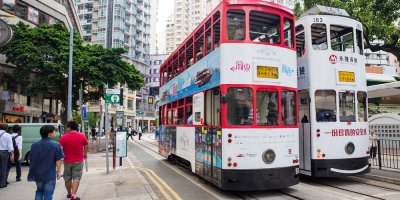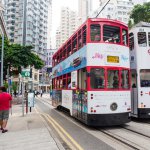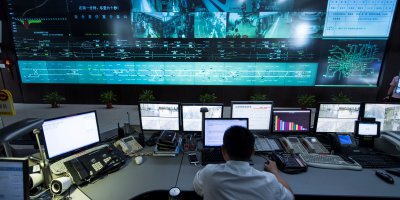
It’s exciting to see how big data will unlock the potential of smart cities. Source: Shutterstock
How big data unlocks the real potential of smart cities
CITIES across the Asia Pacific are growing at an alarming rate, with rapid urbanization in the face of increasing civil, regulatory, and municipal complexities.
To survive and thrive, the region needs to leverage technology and speed up its pursuit of smart solutions.
Predictive technologies and the internet of things (IoT) will provide businesses effortless productivity, security, as well as competitive gains.
However, none of the features can advance to their fullest potential without data analysis for strategic moves and business decisions.
Certainly, this puts big data at the core of developing tomorrow’s smart cities.
For instance, the technology is actually at the center of Singapore’s Smart Nation 2025 pursuit with its strategy spelling out data as a key resource.
Regulators believe that data will “enable businesses to grow and create new business opportunities, and allow the government to have more informed policymaking, service delivery, and operations.”
It is clear to world leaders that effective data analysis promises great potential for economic growth and business mobility in the development of smart cities.
Making the best moves
With sufficient data sets, smarter navigation systems can change how an entire city gets from point A to point B.
For example, an intelligent custom-built platform integrates several sets of data to work out how the city of Perth works and what its people need to find modes of transportation that best suits them.
Instead of looking at just a singular data set, the transportation planning system combines data from the Australian Bureau of Statistics and public transport ticketing systems to create strategic smart solutions that solve contemporary urban challenges.
With big data cutting out delays in commute, businesses will be able to achieve more with greater mobility in hand.
Turning commute time to quality time
Besides that, smarter systems with AI-enabled cameras and sensors also mean that operators can forecast and monitor real-time conditions of traffic and provide timely emergency services.
That is exactly what Alibaba’s “Malaysia City Brain” pilot project aims to achieve.
The program is using the power of big data to combat traffic congestion in the city of Kuala Lumpur via real-time traffic predictions using video and image recognition technologies.
With as much as 600 traffic junctions in the city, Alibaba Cloud Malaysia General Manager Kenny Tan told StarBiz that it will reduce congestion time to about 10 minutes.
“It is all about how to use technology to solve problems and not just about digital transformation,” Tan added.
With big data providing real-time traffic information for the best routes, commuting time can turn into quality time instead.
Without a doubt, data can help ease operations, provide visibility, and prepare all the relevant parties for contingencies.
Most importantly, today’s cities are home to more than half of the world’s population and are increasingly getting denser.
With big data unlocking the real potential of smart cities, governments and businesses will be able to deliver a better quality of life at a reasonable cost to all residents. It will all start with data.
READ MORE
- The criticality of endpoint management in cybersecurity and operations
- Ethical AI: The renewed importance of safeguarding data and customer privacy in Generative AI applications
- How Japan balances AI-driven opportunities with cybersecurity needs
- Deploying SASE: Benchmarking your approach
- Insurance everywhere all at once: the digital transformation of the APAC insurance industry






